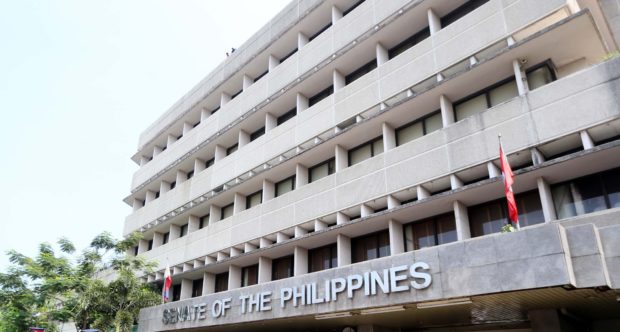Senate approves SK reform bill on 2nd reading

The Senate building at the GSIS Complex in Pasay City. (Photo by LYN RILLON / Philippine Daily Inquirer)
MANILA, Philippines — The Senate on Thursday approved on second reading a bill seeking to further enhance youth participation in local governance by granting monthly honoraria to Sangguniang Kabataan (SK) officials, among other reforms.
The chamber gave its second reading approval on Senate Bill No. 2124, which aims to amend the Republic Act No. 10742 or the Sangguniang Kabataan Reform Act of 2015.
Among the proposed amendments to the law provided under the measure include the granting of monthly honoraria to SK members, secretaries and treasurers.
Only the SK chairpersons are currently entitled to honoraria by virtue of their status as ex-officio members of the Sangguniang Barangays.
“The issue of honoraria or in this case, the lack of it, has been cited as one of the main reasons why fewer people want to join the SK,” Senator Sonny Angara, who sponsored the bill as chairperson of the Senate youth committee, said in a previous statement.
Article continues after this advertisement“We recognize the importance of getting the youth involved in local governance and how this experience contributes to their development as future leaders so we should provide them with all the support we can give,” he added.
Article continues after this advertisementUnder the bill, the honoraria would be chargeable against the funds of the SK, subject to the guidelines issued by the Department of Budget and Management and may be augmented by the local government units through their respective local ordinances.
The measure, meanwhile, limits the use of SK funds for student stipends, book and education allowances, sports and wellness projects, skills training, on-the-job training assistance, cash-for-work, livelihood assistance, environment conservation, calamity preparedness, and capacity-building.
A maximum of 15 percent of the SK funds shall be set aside for the mandatory and continuing training of SK officials and members, the bill stated.
Further, it grants additional privileges to the SK officials including their entitlement to appropriate Civil Service Eligibility, provided that the concerned officials have rendered full terms of office.